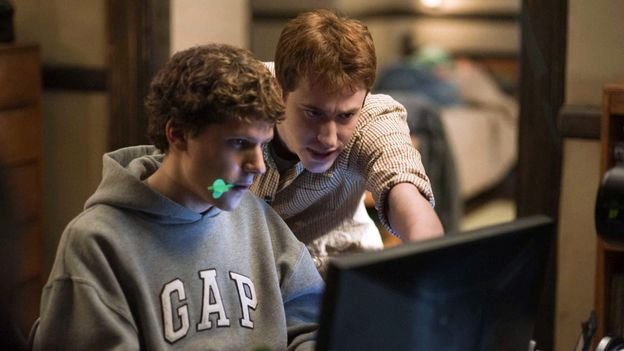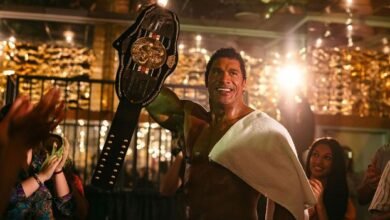How The Social Network predicted the future of tech


Zuckerberg may have a point, but it’s hardly the first time that a film has twisted the truth for dramatic and thematic purposes. “As a historian and someone who believes very strongly in media literacy, I always approach and encourage others to approach a film based on real events as still a dramatisation,” Jason Steinhauer, the author of History, Disrupted: How Social Media and the World Wide Web Have Changed the Past, tells the BBC. “Every Hollywood film takes liberties, removes elements from the story, heightens the drama, and accentuates certain characters, all in the name of storytelling. I would be hesitant for anyone to make an assumption that the Zuckerberg that was depicted in that film is somehow this very accurate picture of the man himself.”
What is striking, though, is the way The Social Network draws a different type of “accurate picture” – a picture of certain negative aspects of social media which wouldn’t be analysed in depth for years after the film came out. According to its critics, online interaction feeds on insecurity; it can encourage hostility; and it has, as the New York Times put it last year, “created a recipe for loneliness”.
In 2020, CNBC reported on a Cigna survey that “found an increasing correlation between social media usage and feelings of loneliness”. And in the words of a 2021 Oxford University philosophy study by Emily Qureshi-Hurst – just one of many recent articles on the subject – “social media heightens feelings of alienation and estrangement” in three ways:
“1) social media allows us to construct artificial versions of ourselves through the use of filters and photo editing software;
2) it provides the means to quantify social approval in groups the size of which the human brain has not evolved for;
3) it extends the size of our social networks but decreases the quality of interactions.”
In short, it turns us all into callow students, desperate to be popular, however badly that desperation makes us feel.
The final scene of The Social Network sums up this state. After betraying his best friend Eduardo and getting his new best friend Sean ousted from Facebook, Zuckerberg sits alone in an office, waiting for Albright to accept his Facebook friend request. The shots of him sitting motionless in his chair, repeatedly tapping the button to see if Albright has responded, are the perfect encapsulation of what social media has done to so many of us. “Followers and likes are the new economy,” says Archer. “It’s an economy based on a false idea of connectivity, because you’re not connected to those people.”
Source link




